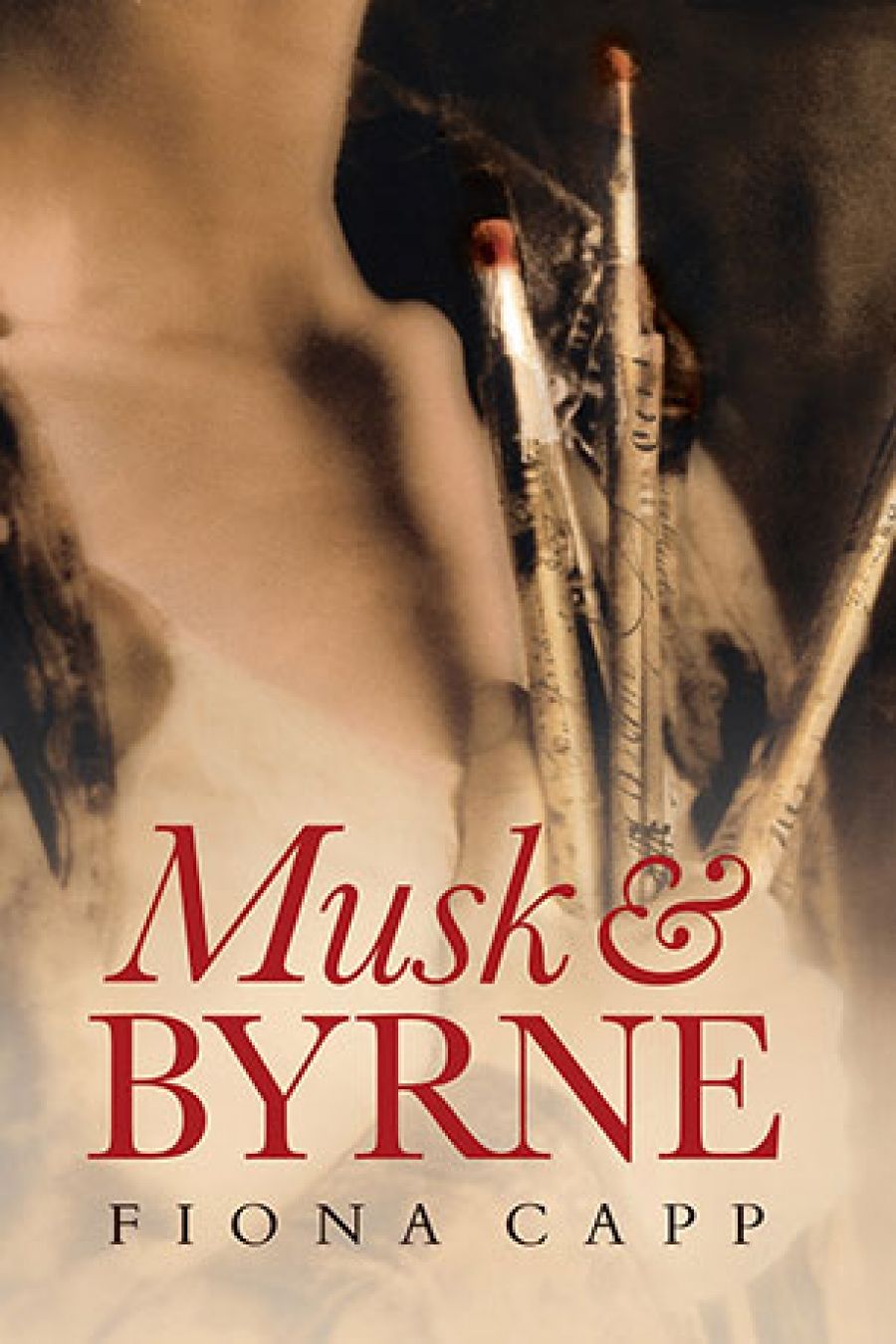
- Free Article: No
- Contents Category: Fiction
- Review Article: Yes
- Online Only: No
- Custom Highlight Text:
Pitched awkwardly between mass-market romance and a literary novel, Musk and Byrne is a curious creation. Spending excessive verbal effort on a familiar and rather vacuous plot, the book never finds a satisfactory shape, and finally lacks a true purpose. Never intellectually thorough enough to offer an exploration of artistic identity, and not trashy enough to deliver tawdry thrills, it is both too well written and not very original.
- Book 1 Title: Musk and Byrne
- Book 1 Biblio: Allen & Unwin, $24.95 pb, 352 pp, 9781741753936
The melodramatic plot is a dispiriting conflation of history and imagination, with an occasional nineteenth-century figure or event wedged into proceedings to embroider the recreated past. The characters take their place and are dutifully jostled around the board by Fiona Capp: the salt-of-the-earth peasant farmer, the cruel Irish cop with a past, the headstrong woman and the sensitive man of reason who truly understands her. There is little in the writing that suggests that Capp knows what tired stereotypes she is attempting to revivify.
Concerning itself with a fictional ‘first female Impressionist’, the novel goes about its standard historical work with all the detailed wallpapering and building-block psychology one would expect of the genre (‘She thinks of all she has read about “The Salon of the Refused” in Paris … she would be proud to be in their company’). Yet for all the heavy-handed allusions, the inserts about Ruskin and Manet are merely high-culture fillers designed to prettify and dignify what is essentially a potboiler, a deeply old-fashioned work. The impressionist bluster can only make the novel seem staid and conventional, and ultimately serves as much purpose as a Bob Dylan lyric dropped into the churning middle of a Forsyth thriller.
I should at this point concede that the plot moves along at a fair clip – speedy narrative delivery being the saving grace of so much genre fiction (and after the clear but plotless waters of so much literary fiction, as the reviewing cliché goes). But I cannot. Yes, the thing contorts and tumbles forth quickly enough, but event is not plot, and mere occurrence does not constitute pace. It isn’t that most of the plot is wearingly signposted and tiresomely delivered, but that concocting a plot is only part of the work of novel-writing. Complimenting literature for simply having a plot, for moving along at a reckless speed, is like admiring a broken car for its ability to roll down the hill of drastically lowered expectations.
Capp’s prose can deliver fine observations: well-wishers gather around a baby ‘like connoisseurs of infant flesh’, and a patch of countryside is described as ‘a colander porous with springs’. For these occasional flashes of poetry, however, the writing is more often bogged down in overly familiar psychological evocation, the thoughts of characters rising to banality as the writing chases after them. Thoughts lurk before ‘rearing up in ambush’. People ‘catch themselves’ thinking. The prose flicks back and forth between standard issue dramatic description (‘She flings her head into the pillow’) and stylised flashback, each memory described in the same tremulous, earnest, falsely lush manner:
He will remember how they stopped on a ridge to watch the low blue fire that danced on one spot like a spirit released from the earth, and how it reminded him of going to midnight mass as a child, and how perfect the moment seemed and how he would have been happy to stand there all night inhaling the smoke-scented air.
The novel is never short of this steady stream of Ondaatje-like reverie (a great writer, but a damaging influence on many contemporary novelists). Whenever mere plot becomes dull, any object can be picked up and made to meaninglessly quiver for a paragraph or two.
There are also nonsensically lush exaggerations: a character, lost in the moment, examining a dried river bank, can ‘almost feel the ancient waves lapping at his feet’, while Jemma similarly at one point can ‘almost hear [her] mind ticking over’. The writing perpetually strives for effect. It can’t bear to have a character think an unemphasised thought, or perform a meaningless action. Capp stands over her characters not as the skilled possessor of galley slaves but as an all-thumbs puppeteer. The immense potential in the subject matter – early Australian artistic influence, the binds of motherhood and artistic expression, longing for European sophistication – remains ignored, at the service of the second-hand plot.
Still, I’m sure the whole thing, should it prove a success in the baffling world of publishing, will make for a rip-roaring mini-series. It will be a tale as tall as the land is wide, tumultuous and enthralling in equal measure. Lisa McCune will make a fine Jemma, and there will no doubt be room for lots of ravishing establishing shots. No matter how high the budget, the producers will recoup the costs with overseas sales. As television, it will pass the time. As a novel, however, it’s a Mills & Boon watercolour, painted over with oils.


Comments powered by CComment